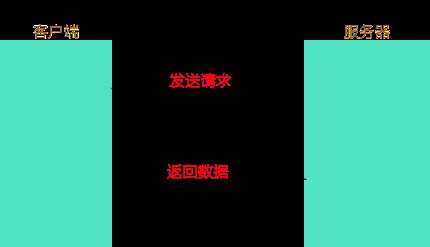- helm安装kubernetes-dashboard(2,Linux运维开发技巧
2401_83974783
2024年程序员学习kuberneteslinux运维开发
当前k8s集群版本1.23.61.1添加repo[root@masterhelm]#helmrepoaddkubernetes-dashboardhttps://kubernetes.github.io/dashboard/[root@masterhelm]#helmsearchrepokubernetes-dashboard/kubernetes-dashboardNAMECHARTVERSIO
- 这些搜索技巧你不会?
前端后端
Hey,我是沉浸式趣谈本文首发于【沉浸式趣谈】,我的个人博客https://yaolifeng.com也同步更新。转载请在文章开头注明出处和版权信息。如果本文对您有所帮助,请点赞、评论、转发,支持一下,谢谢!每天搜索,你却只会简单输入几个词?搜索结果总被广告和无关内容淹没?掌握这些搜索技巧,让你不再在信息海洋中迷失,直达目标信息!基础搜索技巧1.多关键词搜索方式:关键词1关键词2关键词3例如:Py
- 如何区别原生页面和H5页面
大汉堡玩测试
功能测试
文章目录前言原生开发特点H5开发特点混合开发怎么区别是原生还是H5总结前言软件采用混合开发的模式时,测试发现了bug找开发沟通有时会找错人,明明是H5模块的错误却找了负责原生模块的开发,显得很不专业~那在测试时该如何区分是原生的报错还是H5报错呢?原生开发原生开发(NativeApp开发),是为特定操作系统(如iOS使用Objective-C/Swift、安卓使用Java/Kotlin)专门开发的
- APP怎么抓取原生日志 - Android篇
大汉堡玩测试
android功能测试
文章目录前言为什么要抓原生页面的日志举一个抓取原生日志的例子AndroidDebugBridge(ADB)安装ADB连接设备验证连接抓取日志注意点总结前言好困~写点我觉得重要的吧,IOS和HarmonyOSNEXT这周写为什么要抓原生页面的日志原生日志能够捕捉到与操作系统和应用框架交互的关键信息,包括性能瓶颈、崩溃报告和安全事件等,而这些是纯H5日志无法提供的,确保了对应用行为的全面监控和精准调试
- 基于AT89C52单片机的智能导盲杖报警设计
七月小卖铺
单片机单片机嵌入式硬件
点击链接获取Keil源码与ProjectBackups仿真图:https://download.csdn.net/download/qq_64505944/90498287?spm=1001.2014.3001.5503C+22部分参考设计如下:摘要超声波测距技术因其具有较强的指向性、低能耗、较长的传播距离等优点,已成为广泛应用于各类传感器技术和自动控制技术相结合的测距方案之一。超声波传感器利用声
- 【DeepSeek】 全方位使用指南————简版
諰.
人工智能aiAI写作
一、平台概述DeepSeek(深度求索)是专注实现AGI的中国的人工智能公司,提供多款AI产品:智能对话(Chat)文生图(Art)代码助手(Coder)API开发接口企业定制解决方案二、注册与登录2.1账号创建访问官网https://www.deepseek.com点击右上角「注册」支持三种方式:手机号+短信验证邮箱注册(需验证邮件)第三方登录(微信/Google账号)2.2订阅计划套餐类型免费
- cherry-studio - 多模型支持的跨平台 AI 桌面助手
小众AI
AI开源人工智能AI编程
GitHub:https://github.com/CherryHQ/cherry-studio更多AI开源软件:发现分享好用的AI工具、AI开源软件、AI模型、AI变现-小众AI一款支持多种大语言模型服务的跨平台桌面客户端,兼容Windows、Linux和macOS系统。它支持主流云端模型(如OpenAI、Anthropic等)以及本地模型(如Ollama、LMStudio),能够满足文本生成、
- Open-Sora - 为所有人实现高效的视频制作大众化
小众AI
AI开源音视频人工智能AI编程
GitHub:https://github.com/hpcaitech/Open-Sora更多AI开源软件:发现分享好用的AI工具、AI开源软件、AI模型、AI变现-小众AI这是一款开源的SOTA(State-of-the-Art)视频生成模型,仅用20万美元(224张GPU)就能训练出商业级11B参数的视频生成大模型。它采用Python语言和PyTorch深度学习框架开发,具有生成速度快、资源消
- OWL - 优化劳动力学习的通用智能体
小众AI
AI开源学习人工智能AI编程
GitHub:https://github.com/camel-ai/owl更多AI开源软件:发现分享好用的AI工具、AI开源软件、AI模型、AI变现-小众AIOWL是一个前沿的多智能体协作框架,推动任务自动化的边界,构建在CAMEL-AIFramework。愿景是彻底变革AI智能体协作解决现实任务的方式。通过利用动态智能体交互,OWL实现了跨多领域更自然、高效且稳健的任务自动化。OWL在GAIA
- AnythingLLM - 任何文档资源内容转换为任何LLM
小众AI
AI开源人工智能AI编程
更多AI开源软件:AI开源-小众AIhttps://www.aiinn.cn/sources一个全栈应用程序,使您能够将任何文档、资源或内容转换为任何LLM都可以在聊天期间用作参考的上下文。此应用程序允许您选择要使用的LLM或矢量数据库,并支持多用户管理和权限。AnythingLLM是一个全栈应用程序,您可以在其中使用商用现成的LLM或流行的开源LLM和vectorDB解决方案来构建一个不折不扣的
- Visual C++从入门到精通第三版 PDF 下载
范武心Lucinda
VisualC++从入门到精通第三版PDF下载【下载地址】VisualC从入门到精通第三版PDF下载VisualC++从入门到精通第三版PDF下载项目地址:https://gitcode.com/open-source-toolkit/f4bb4资源介绍本仓库提供《VisualC++从入门到精通第三版》的PDF版本下载。这本书是一本非常适合初学者的入门书籍,内容涵盖了从C++基础知识到Visual
- Ubuntu20.04安装并配置Pycharm2020.2.5
搬砖的打工人!!!
ubuntupycharmpython
一.下载pycharm社区版1.下载地址:PyCharm:thePythonIDEfordatascienceandwebdevelopmentThePythonIDEfordatascienceandwebdevelopmentwithintelligentcodecompletion,on-the-flyerrorchecking,quick-fixes,andmuchmore.https:/
- Virtual Machine Platform is not enabled. Enable it using the following PowerShell script (in an admi
朋也透william
docker
DockerDesktop安装指南以及Windows下WSL2和Hyper-V相关问题追查-寂寞姜大虎-博客园(cnblogs.com)https://www.cnblogs.com/qfl-blog/p/18200575
- LeetCode第98题_验证二叉搜索树
@蓝莓果粒茶
算法leetcodelinux算法链表c++数据结构python
LeetCode第98题:验证二叉搜索树题目描述给你一个二叉树的根节点root,判断其是否是一个有效的二叉搜索树。有效二叉搜索树定义如下:节点的左子树只包含小于当前节点的数。节点的右子树只包含大于当前节点的数。所有左子树和右子树自身必须也是二叉搜索树。难度中等问题链接https://leetcode.cn/problems/validate-binary-search-tree/示例示例1:输入:
- 12.1-12.7学习周报
谢m鑫天天揍我
学习
提示:文章写完后,目录可以自动生成,如何生成可参考右边的帮助文档文章目录摘要Abstract一、k-近邻法二、持续学习总结摘要本周主要学习了k邻近算法的原理和应用场景,了解了持续学习的有关概念和原理。AbstractThisweek,wemainlylearnedtheprinciplesandapplicationscenariosofk-proximityalgorithm,andlearne
- 实用工具-Another Redis Desktop Manager介绍
吕海洋
数据库工具redis数据库
GitHub:https://github.com/qishibo/AnotherRedisDesktopManager/releasesGitee:AnotherRedisDesktopManager发行版-Gitee.comAnotherRedisDesktopManager是一款免费的Redis可视化管理工具,具有以下特点和功能:特点跨平台支持:兼容Windows、Mac、Linux等操作系
- 141.HarmonyOS NEXT系列教程之3D立方体旋转轮播案例讲解之IDataSource接口实现
harmonyos-next
温馨提示:本篇博客的详细代码已发布到git:https://gitcode.com/nutpi/HarmonyosNext可以下载运行哦!HarmonyOSNEXT系列教程之3D立方体旋转轮播案例讲解之IDataSource接口实现效果演示1.IDataSource接口概述1.1接口作用IDataSource接口定义了数据源的标准接口,提供了:数据访问方法数据操作方法监听器管理方法1.2接口实现e
- 10篇R1相关的研究全面汇总,万字思考!
datawhale
原创长琴DatawhaleDatawhale干货作者:长琴,Datawhale成员本文通过10篇R1相关的研究,介绍R1后LLM的新范式。其核心就是如何进一步增强LLM的能力。本文中的相关阅读,可以在主页找到对应文章:主页地址:https://yam.gift/基本框架首先是整体的框架,如下所示。•Base+SFT•R1冷启动•LIMO(817DataSelection)•s1(1000)•Bas
- 浏览器工作原理深度解析(阶段一):从 URL 到页面渲染的完整流程
码农的时光故事
javascript前端
一、浏览器工作流程概述作为前端开发者,我们每天都在与浏览器打交道,但多数人对其内部工作机制却知之甚少。实际上,浏览器的核心功能就是将用户输入的URL转换为可视化的网页。这一过程大致分为六个关键步骤:网络请求:通过HTTP/HTTPS协议获取页面资源构建DOM树:解析HTML代码生成文档对象模型样式计算:解析CSS规则并应用到对应元素布局渲染:计算元素位置和尺寸生成渲染树合成优化:将渲染层合并为位图
- JAVA学习-练习试用Java实现“实现一个Spark应用,对大数据集中的文本数据进行情感分析和关键词筛选”
守护者170
java学习java学习
问题:实现一个Spark应用,对大数据集中的文本数据进行情感分析和关键词筛选。解答思路:要实现一个Spark应用,对大数据集中的文本数据进行情感分析和关键词筛选,需要按照以下步骤进行:1.环境准备确保的环境中已经安装了ApacheSpark。可以从[ApacheSpark官网](https://spark.apache.org/downloads.html)下载并安装。2.创建Spark应用以下是
- S-function模块案例详解(MATLAB程序)
常岱昶Salena
S-function模块案例详解(MATLAB程序)【下载地址】S-function模块案例详解MATLAB程序S-function模块案例详解(MATLAB程序)本仓库提供了一个详细的S-function模块案例,主要内容为编写的蹦极系统的S-function案例详解项目地址:https://gitcode.com/open-source-toolkit/a6c52本仓库提供了一个详细的S-fu
- 基于koajsAdmin+mongodb的后台管理快速开发框架安装运行记录
后青春期的诗go
经验分享mongodb数据库node.jsvue.jselementui
前置操作下载源码源码地址:https://gitee.com/zhoushuigui/koajs-admin安装mongodb数据库并连接安装yarnnpminstallyarn-g安装nodemonnpminstallnodemon-g前端运行安装依赖进入项目根目录,在命令行执行如下命令安装依赖:yarn--registry=https://registry.npmmirror.com启动服务y
- python中的构造函数
weixin_30770495
python
python中构造函数可以这样写classclassname():def——init——(self):#构造函数函数体转载于:https://www.cnblogs.com/begoogatprogram/p/4649076.html
- HBuilderX的下载、安装
听海边涛声
HBuilderX
HBuilderX简称HX,是一款轻量级的、免费的IDE。它具有强大的语法提示和vue支持。访问HBuilderX的官网:https://www.dcloud.io/hbuilderx.html选择要下载的版本,我下载的是v4.08版本:将压缩包下拉以后解压到某个目录下就可以了,不需要安装过程,例如,我解压到D:\HBuilderX目录下面:双击HBuilderX.exe,就可以运行了:注意:HB
- FDTD:基于Python的电磁场模拟开源库教程
邱进斌Olivia
FDTD:基于Python的电磁场模拟开源库教程项目地址:https://gitcode.com/gh_mirrors/fd/fdtd项目介绍FDTD(Finite-DifferenceTime-Domain)是一个致力于电磁场仿真的开源项目,由flaport维护。此项目基于Python语言,提供了一套灵活且强大的工具集,用于解决各种电磁学问题,包括但不限于光学、射频以及微波工程中的传播、散射等问
- FastGPT-Admin 用户管理系统搭建与配置指南
张栋涓Kerwin
FastGPT-Admin用户管理系统搭建与配置指南项目地址:https://gitcode.com/gh_mirrors/fa/fastgpt-admin项目简介FastGPT-Admin是一个专为FastGPT平台设计的后台用户管理系统,支持FastGPT的特定版本(例如4.8.3),提供了基本的用户管理功能,包括增加、删除、编辑和查询用户。该系统通过现代Web技术堆栈构建,易于部署,并且支持
- Laravel 8 项目基于 PHP 8 与 Nginx 的线上部署全攻略
你华还是你华
laravel上线级项目phplaravelnginx
本文目录前言一、服务器1.1购买与选型1.2服务器配置安装php8二、项目上线2.1git关联2.2安装项目依赖2.3项目配置2.3.1基础配置2.3.2数据库及表配置与创建2.3.3Navicat连接Mysql2.3.4运行seeder进行数据填充2.3.5Nginx配置与报错处理三、项目成功调用API示例四、自动配置https证书4.1Certbot概述4.2配置证书4.3自动更新证书4.4效
- src小白入门简介
吃饱饭,练球
安全网络安全src
隐雾src01为什么别人挖得到洞你挖不到?相信有很多师傅都有在网上看过不少别人发的挖洞的文章为什么你看完之后感觉自己懂了,但真正去实战的时候却挖不到?这就涉及到一个知识转化率的问题在读完这篇文章之后你有没有抓住细节、抓住该学习的点呢?以前怎么样不重要,现在教你们怎么去读一篇文章,然后学习到自己想要的这里我拿北山的一篇文章做例子:https://mp.weixin.qq.com/s?__biz=Mz
- react-11(自定义hook、useRef)
我只是想饮一杯奶茶
reactJavaScriptreact.jsjavascript前端typescript
自定义hook主要是我们利用已有的hook,实现hook的效果,并在其他地方引用。(感觉像是封装了一个方法)//定义constfetchHook=(url)=>{const[data,setData]=useState({})const[loading,setLoading]=useState('')useEffect(()=>{setLoading('loading')axios.get(url
- React Material Components Web 使用教程
计煦能Leanne
ReactMaterialComponentsWeb使用教程react-mdc-webMaterialDesignComponentsforReact项目地址:https://gitcode.com/gh_mirrors/re/react-mdc-web项目介绍ReactMaterialComponentsWeb(简称react-mdc-web)是一个基于Google的MaterialDesign
- springmvc 下 freemarker页面枚举的遍历输出
杨白白
enumfreemarker
spring mvc freemarker 中遍历枚举
1枚举类型有一个本地方法叫values(),这个方法可以直接返回枚举数组。所以可以利用这个遍历。
enum
public enum BooleanEnum {
TRUE(Boolean.TRUE, "是"), FALSE(Boolean.FALSE, "否");
- 实习简要总结
byalias
工作
来白虹不知不觉中已经一个多月了,因为项目还在需求分析及项目架构阶段,自己在这段
时间都是在学习相关技术知识,现在对这段时间的工作及学习情况做一个总结:
(1)工作技能方面
大体分为两个阶段,Java Web 基础阶段和Java EE阶段
1)Java Web阶段
在这个阶段,自己主要着重学习了 JSP, Servlet, JDBC, MySQL,这些知识的核心点都过
了一遍,也
- Quartz——DateIntervalTrigger触发器
eksliang
quartz
转载请出自出处:http://eksliang.iteye.com/blog/2208559 一.概述
simpleTrigger 内部实现机制是通过计算间隔时间来计算下次的执行时间,这就导致他有不适合调度的定时任务。例如我们想每天的 1:00AM 执行任务,如果使用 SimpleTrigger,间隔时间就是一天。注意这里就会有一个问题,即当有 misfired 的任务并且恢复执行时,该执行时间
- Unix快捷键
18289753290
unixUnix;快捷键;
复制,删除,粘贴:
dd:删除光标所在的行 &nbs
- 获取Android设备屏幕的相关参数
酷的飞上天空
android
包含屏幕的分辨率 以及 屏幕宽度的最大dp 高度最大dp
TextView text = (TextView)findViewById(R.id.text);
DisplayMetrics dm = new DisplayMetrics();
text.append("getResources().ge
- 要做物联网?先保护好你的数据
蓝儿唯美
数据
根据Beecham Research的说法,那些在行业中希望利用物联网的关键领域需要提供更好的安全性。
在Beecham的物联网安全威胁图谱上,展示了那些可能产生内外部攻击并且需要通过快速发展的物联网行业加以解决的关键领域。
Beecham Research的技术主管Jon Howes说:“之所以我们目前还没有看到与物联网相关的严重安全事件,是因为目前还没有在大型客户和企业应用中进行部署,也就
- Java取模(求余)运算
随便小屋
java
整数之间的取模求余运算很好求,但几乎没有遇到过对负数进行取模求余,直接看下面代码:
/**
*
* @author Logic
*
*/
public class Test {
public static void main(String[] args) {
// TODO A
- SQL注入介绍
aijuans
sql注入
二、SQL注入范例
这里我们根据用户登录页面
<form action="" > 用户名:<input type="text" name="username"><br/> 密 码:<input type="password" name="passwor
- 优雅代码风格
aoyouzi
代码
总结了几点关于优雅代码风格的描述:
代码简单:不隐藏设计者的意图,抽象干净利落,控制语句直截了当。
接口清晰:类型接口表现力直白,字面表达含义,API 相互呼应以增强可测试性。
依赖项少:依赖关系越少越好,依赖少证明内聚程度高,低耦合利于自动测试,便于重构。
没有重复:重复代码意味着某些概念或想法没有在代码中良好的体现,及时重构消除重复。
战术分层:代码分层清晰,隔离明确,
- 布尔数组
百合不是茶
java布尔数组
androi中提到了布尔数组;
布尔数组默认的是false, 并且只会打印false或者是true
布尔数组的例子; 根据字符数组创建布尔数组
char[] c = {'p','u','b','l','i','c'};
//根据字符数组的长度创建布尔数组的个数
boolean[] b = new bool
- web.xml之welcome-file-list、error-page
bijian1013
javaweb.xmlservleterror-page
welcome-file-list
1.定义:
<welcome-file-list>
<welcome-file>login.jsp</welcome>
</welcome-file-list>
2.作用:用来指定WEB应用首页名称。
error-page1.定义:
<error-page&g
- richfaces 4 fileUpload组件删除上传的文件
sunjing
clearRichfaces 4fileupload
页面代码
<h:form id="fileForm"> <rich:
- 技术文章备忘
bit1129
技术文章
Zookeeper
http://wenku.baidu.com/view/bab171ffaef8941ea76e05b8.html
http://wenku.baidu.com/link?url=8thAIwFTnPh2KL2b0p1V7XSgmF9ZEFgw4V_MkIpA9j8BX2rDQMPgK5l3wcs9oBTxeekOnm5P3BK8c6K2DWynq9nfUCkRlTt9uV
- org.hibernate.hql.ast.QuerySyntaxException: unexpected token: on near line 1解决方案
白糖_
Hibernate
文章摘自:http://blog.csdn.net/yangwawa19870921/article/details/7553181
在编写HQL时,可能会出现这种代码:
select a.name,b.age from TableA a left join TableB b on a.id=b.id
如果这是HQL,那么这段代码就是错误的,因为HQL不支持
- sqlserver按照字段内容进行排序
bozch
按照内容排序
在做项目的时候,遇到了这样的一个需求:
从数据库中取出的数据集,首先要将某个数据或者多个数据按照地段内容放到前面显示,例如:从学生表中取出姓李的放到数据集的前面;
select * fro
- 编程珠玑-第一章-位图排序
bylijinnan
java编程珠玑
import java.io.BufferedWriter;
import java.io.File;
import java.io.FileWriter;
import java.io.IOException;
import java.io.Writer;
import java.util.Random;
public class BitMapSearch {
- Java关于==和equals
chenbowen00
java
关于==和equals概念其实很简单,一个是比较内存地址是否相同,一个比较的是值内容是否相同。虽然理解上不难,但是有时存在一些理解误区,如下情况:
1、
String a = "aaa";
a=="aaa";
==> true
2、
new String("aaa")==new String("aaa
- [IT与资本]软件行业需对外界投资热情保持警惕
comsci
it
我还是那个看法,软件行业需要增强内生动力,尽量依靠自有资金和营业收入来进行经营,避免在资本市场上经受各种不同类型的风险,为企业自主研发核心技术和产品提供稳定,温和的外部环境...
如果我们在自己尚未掌握核心技术之前,企图依靠上市来筹集资金,然后使劲往某个领域砸钱,然
- oracle 数据块结构
daizj
oracle块数据块块结构行目录
oracle 数据块是数据库存储的最小单位,一般为操作系统块的N倍。其结构为:
块头--〉空行--〉数据,其实际为纵行结构。
块的标准大小由初始化参数DB_BLOCK_SIZE指定。具有标准大小的块称为标准块(Standard Block)。块的大小和标准块的大小不同的块叫非标准块(Nonstandard Block)。同一数据库中,Oracle9i及以上版本支持同一数据库中同时使用标
- github上一些觉得对自己工作有用的项目收集
dengkane
github
github上一些觉得对自己工作有用的项目收集
技能类
markdown语法中文说明
回到顶部
全文检索
elasticsearch
bigdesk elasticsearch管理插件
回到顶部
nosql
mapdb 支持亿级别map, list, 支持事务. 可考虑做为缓存使用
C
- 初二上学期难记单词二
dcj3sjt126com
englishword
dangerous 危险的
panda 熊猫
lion 狮子
elephant 象
monkey 猴子
tiger 老虎
deer 鹿
snake 蛇
rabbit 兔子
duck 鸭
horse 马
forest 森林
fall 跌倒;落下
climb 爬;攀登
finish 完成;结束
cinema 电影院;电影
seafood 海鲜;海产食品
bank 银行
- 8、mysql外键(FOREIGN KEY)的简单使用
dcj3sjt126com
mysql
一、基本概念
1、MySQL中“键”和“索引”的定义相同,所以外键和主键一样也是索引的一种。不同的是MySQL会自动为所有表的主键进行索引,但是外键字段必须由用户进行明确的索引。用于外键关系的字段必须在所有的参照表中进行明确地索引,InnoDB不能自动地创建索引。
2、外键可以是一对一的,一个表的记录只能与另一个表的一条记录连接,或者是一对多的,一个表的记录与另一个表的多条记录连接。
3、如
- java循环标签 Foreach
shuizhaosi888
标签java循环foreach
1. 简单的for循环
public static void main(String[] args) {
for (int i = 1, y = i + 10; i < 5 && y < 12; i++, y = i * 2) {
System.err.println("i=" + i + " y="
- Spring Security(05)——异常信息本地化
234390216
exceptionSpring Security异常信息本地化
异常信息本地化
Spring Security支持将展现给终端用户看的异常信息本地化,这些信息包括认证失败、访问被拒绝等。而对于展现给开发者看的异常信息和日志信息(如配置错误)则是不能够进行本地化的,它们是以英文硬编码在Spring Security的代码中的。在Spring-Security-core-x
- DUBBO架构服务端告警Failed to send message Response
javamingtingzhao
架构DUBBO
废话不多说,警告日志如下,不知道有哪位遇到过,此异常在服务端抛出(服务器启动第一次运行会有这个警告),后续运行没问题,找了好久真心不知道哪里错了。
WARN 2015-07-18 22:31:15,272 com.alibaba.dubbo.remoting.transport.dispatcher.ChannelEventRunnable.run(84)
- JS中Date对象中几个用法
leeqq
JavaScriptDate最后一天
近来工作中遇到这样的两个需求
1. 给个Date对象,找出该时间所在月的第一天和最后一天
2. 给个Date对象,找出该时间所在周的第一天和最后一天
需求1中的找月第一天很简单,我记得api中有setDate方法可以使用
使用setDate方法前,先看看getDate
var date = new Date();
console.log(date);
// Sat J
- MFC中使用ado技术操作数据库
你不认识的休道人
sqlmfc
1.在stdafx.h中导入ado动态链接库
#import"C:\Program Files\Common Files\System\ado\msado15.dll" no_namespace rename("EOF","end")2.在CTestApp文件的InitInstance()函数中domodal之前写::CoIniti
- Android Studio加速
rensanning
android studio
Android Studio慢、吃内存!启动时后会立即通过Gradle来sync & build工程。
(1)设置Android Studio
a) 禁用插件
File -> Settings... Plugins 去掉一些没有用的插件。
比如:Git Integration、GitHub、Google Cloud Testing、Google Cloud
- 各数据库的批量Update操作
tomcat_oracle
javaoraclesqlmysqlsqlite
MyBatis的update元素的用法与insert元素基本相同,因此本篇不打算重复了。本篇仅记录批量update操作的
sql语句,懂得SQL语句,那么MyBatis部分的操作就简单了。 注意:下列批量更新语句都是作为一个事务整体执行,要不全部成功,要不全部回滚。
MSSQL的SQL语句
WITH R AS(
SELECT 'John' as name, 18 as
- html禁止清除input文本输入缓存
xp9802
input
多数浏览器默认会缓存input的值,只有使用ctl+F5强制刷新的才可以清除缓存记录。如果不想让浏览器缓存input的值,有2种方法:
方法一: 在不想使用缓存的input中添加 autocomplete="off"; eg: <input type="text" autocomplete="off" name

